

See DocPresentation below:
| TubaDocs: | Theme | Actual | Future | Past | Special | DocPresentation |
| TubaDocs: | Theme | Actual | Future | Past | Special | DocPresentation |
| TubaDocs: | Theme | Actual | Future | Past | Special | DocPresentation |
| TubaDocs: | Theme | Actual | Future | Past | Special | DocPresentation |
| TubaDocs: | Theme | Actual | Future | Past | Special | DocPresentation |
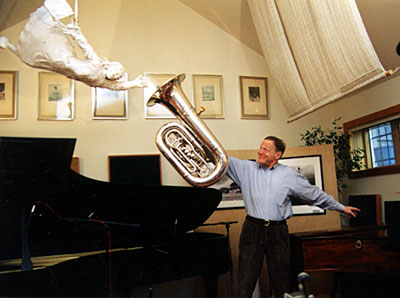
By Suria Santana courtesy of AAMC.org, see original article
|
Eli Newberger, M.D., pediatrician and professional tuba player. |
Eli Newberger, M.D., former chief of a clinic at Boston Children's Hospital, once described his work with abused and neglected children as one that peers into "the worst miseries of people's lives." "Few of us can imagine what it is like to be terrorized every day, to endure painful and humiliating assaults, and not be believed," he wrote in an article for the book Doctors Afield.
For more than 30 years, Dr. Newberger's consolation at the end of stressful workdays was his weekly gigs as tuba player for the New Black Eagle Jazz Band. As he left the clinic and entered Boston's jazz scene, he moved from a world filled with misery to one teeming with creative energy. "At five I leave the clinic and forty-five minutes later I pull into a parking lot outside Coffee, Tea, and Melody, the pub the Black Eagles have been playing since 1995," he wrote in Doctors Afield. "I take off my tie, pull the tuba out of the trunk, and enter a different world. Here, injustice does not prevail, there is a sadness but not misery, and every moment of improvisation carries with it a prospect of redemption. Indeed, 'mistakes' in jazz improvisation become platforms for new ideas, not catastrophes that destroy lives."
Dr. Newberger's contrasting careers - one filled with weighty decisions affecting the lives of battered children, the other, a carefree activity allowing him to pour his emotions out through a tuba - have been mutually beneficial, he says. Although his work as assistant professor of pediatrics at Harvard Medical School and lecturer of maternal and child health at Harvard School of Public Health might appear to contrast with his after-work activities, they actually complement each other well. As Dr. Newberger points out in Doctors Afield, "The joy and release of this musical life has enabled me to deal with the rigors of child abuse and family violence: my medical life connects to the sense of shared struggle and social protest that runs deep in the history and practice of jazz."
Dr. Newberger has been well recognized for his skills as a jazz musician. In a 1999 readers' poll published in the Mississippi Rag, a magazine that covers the jazz and blues industry, he was named the best traditional jazz tuba player. His musical group, the New Black Eagle Jazz Band, has played for audiences around the country and internationally.
How does Dr. Newberger, and others in similar situations, find the time? Keith Cheng, M.D., Ph.D., another doctor-musician whose commitment to medicine hasn't kept him from seriously pursuing his musical interests, says that the answer is simple. "If you have the passion for music, thinking about or doing it is part of you. You almost don't have a choice," he states.
Dr. Cheng, a cancer-research geneticist at the Jake Gittlen Cancer Research Institute and an associate professor of pathology at Pennsylvania State University College of Medicine, participates in concerts regularly, and founded "Music for Jake," a benefit concert for cancer research, and their Kienle Humanities Series. He has played the piano since age six, and continued doing so through college, medical school and residency. Despite the considerable demands of his training, he has continued to improve his musicianship on the piano. He says that his biggest inspiration was and still is knowing and studying the artistry of cellist Yo-Yo Ma while he was at Harvard College. Yo-Yo is hailed by critics as one of history's greatest cellists. "Yo-Yo Ma was in my dorm, and generously offered his room to me, a complete stranger, to stay in while he was out of town so I could investigate housing and use the dorm piano," Dr. Cheng recalls. "He has magical creativity and is unsurpassed in his ability to maintain a long musical line."
|
Yeou-Cheng Ma, M.D., pediatrician and executive director, Children's Orchestra in New York |
It turns out Dr. Cheng wasn't Yo-Yo Ma's only connection to doctor-musicians. His own sister is a pediatrician, an assistant professor of clinical pediatrics at Albert Einstein College of Medicine, an accomplished violinist, and the executive director of the Children's Orchestra in New York, an organization with more than 200 members, 3 orchestras, and 17 chamber music groups. In her pediatrics practice, Yeou-Cheng Ma, M.D., specialized in dealing with children with communication disorders. "I have indeed managed to integrate several of my lives, singing to my patients and engaging them in simple finger play to relax them, and teaching some of my music students to get around some of their 'blind spots' in learning their technical skills," says Dr. Ma.
Recently, Dr. Ma decided to lighten her pediatrics workload in order to concentrate on her music. She now works at a pediatric clinic once a week. "I continue working seven days a week in music, which permeates my existence," she says. Even when most of her time was dedicated to medicine, music still played an important role. "Music has always been part of my life, even through the most rigorous rotations in medical school and residency training. Music runs almost continuously through my head during exams, while driving, while tending to the dishes and the laundry," she says.
Kate Goodrich is another doctor-musician who can't conceive of a life without music. "Music is such an intrinsic part of my life that I can't imagine not being involved with it in a significant way," says Dr. Goodrich. A hospitalist and assistant professor at George Washington University Hospital, she also sings in a prestigious 190-person choir, the Choral Arts Society of Washington. "I've always been around music," she says. "My mother and my sister are great singers, and growing up, I always saw them walking around the house singing away." Dr. Goodrich took piano lessons for 20 years, starting at the age of four. In college, she made the switch from piano to singing, in part because singing practice wasn't as time-consuming as piano lessons. After finishing her residency, Dr. Goodrich joined the Choral Arts Society of Washington. "Interacting with people at the choir society, where we have such a diverse group of people, has made me a more well-rounded person who can interact with human beings better, and consequently, treat patients better," says Dr. Goodrich.
People skills, and a greater social awareness, are abilities other doctor-musicians say they developed from having second careers as musicians, or simply from practicing music part time. Dr. Newberger says that working as a musician can have a much-needed humbling effect on doctors who are used to the special status the medical profession might bring. When performing at a yacht club years ago, Dr. Newberger was told by a staff member that "musicians enter through the kitchen door," as he was lugging his tuba up the main entrance. "In many environments where musicians work, and I have particularly in mind jazz players, they are, sadly, seen and treated as low-lifes," comments Dr. Newberger. "This is so different from the exaltation you are given, and can come to believe you deserve, in medicine."
Disappointed with his life as a professional musician, Brian Benson, a third-year medical student at Columbia University College of Physicians and Surgeons, decided to switch to medicine. After graduating from the prestigious Juilliard Musical Conservatory in New York in 1993, he was selected to play the trumpet for the Jerusalem Symphony in Israel. "I loved it there," says Benson, adding that during that time the Oslo Peace Accord had just been signed and everyone was pretty optimistic. "It was the best time to travel in Israel."
Benson did a variety of things during his two musical seasons in Israel, including standard orchestra works, making world premiere recordings of Israeli composers, participating in television shows for kids, teaching, free-lancing, and commercial recordings. For many musicians, Benson's time in Israel would be a dream come true. "When I got there, although I enjoyed it, it wasn't as fulfilling as I'd expected," he recalls. "Many of my colleagues were frustrated. Then, after coming back to New York and playing with excellent musical groups, I noticed that the morale was pretty low and that people were frustrated. At that point, I began thinking of something else that would be more rewarding," Benson recalls. And he opted to go into medicine.
Merrill K. Wolf, M.D., also gave up a promising career in music to pursue medicine. A professor of cell biology and neurology at the University of Massachusetts Medical School, he performed brain research for 30 years, and now teaches courses in neural anatomy. A child prodigy, Dr. Wolf uttered his first words when four months old, read at a first-grade level by his first birthday, and at 22 months of age, could already play piano pieces by ear. Dr. Wolf's first public performance at the piano happened when he was only five, and by his teens, he was already playing recitals nationwide. At the age of 14, he graduated from Yale with a music degree.
But Dr. Wolf decided to forgo his musical career for two reasons: one physical, the other, psychological. "My hands were too small for the piano," he says. "They are perfectly good pianist hands but about two-thirds the correct size." Having small hands makes it difficult for a pianist to play pieces requiring him to stretch to the instrument's extremities. Dr. Wolf also took a look at what he calls the "stars system" in professional performing arts, and decided to instead pursue the just-as-noble, but not so self-aggrandizing profession of medical research.
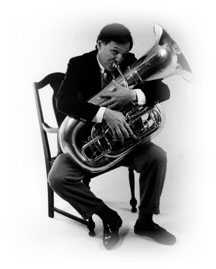 "Fine musicians and
doctors share a commitment to professional excellence in technique and in what I
think is best called ethics: subordinating one's own personal and professional
agenda to the service of the ensemble, and to the best application of science in
the care of patients," says Dr. Newberger. "Both require a measure of
humility, and of contemplating long-standing traditions of great artists and
practitioners."
"Fine musicians and
doctors share a commitment to professional excellence in technique and in what I
think is best called ethics: subordinating one's own personal and professional
agenda to the service of the ensemble, and to the best application of science in
the care of patients," says Dr. Newberger. "Both require a measure of
humility, and of contemplating long-standing traditions of great artists and
practitioners."
Dr. Cheng also sees similarities between music and medicine, pointing out that they both require a combination of analytical and artistic abilities. "Problem solving in music is an everyday experience; you are always trying to find a better way to turn a phrase when playing an instrument," he explains. "You deal with the laws of physics between your hand and the music, and you have to develop a conception of the music which has intellectual, artistic and inspirational components. Music played technically, without artistry, is lifeless; apply the art of music, and you have a rich life experience."
"In medicine, when dealing with a patient's problem, you apply analytical skills to determine diagnosis and treatment, which is comparable to instrumental technique," he continues. "But in much of medicine, you must also deal with important, but often subtle, emotional issues; applying the art of medicine greatly effects our ability to give comfort to the patient, and to effectively motivate the patient to take better care of themselves.
Dr. Ma agrees. "Both music and medicine are simultaneously science and art. The best doctors are those who practice the 'art' of medicine, while employing the latest scientific advances in treatment of their patients. The best musicians are those who are aware of the 'science' of drawing the best sound to give voice to their artistic expression."
He has got his own homepage www.EliNewberger.com
(Doing exactly what I recommend to all InternetDocs, to take a domain with your
own name if you can still get it!)
On that there are super recordings!
Watch his new and interesting article about The Transition From Ragtime To Improvised Piano Style
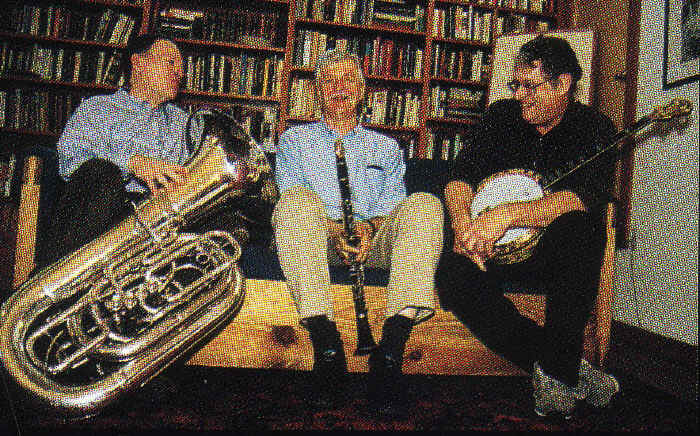
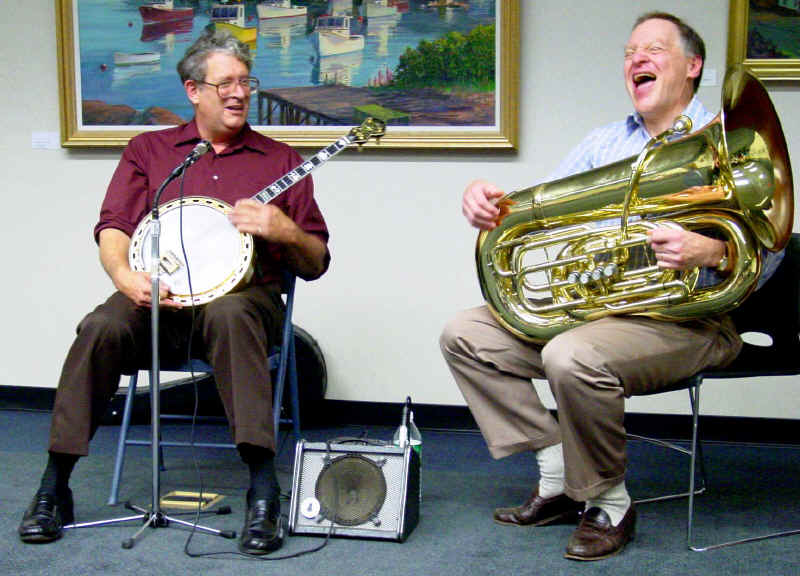
On May 9th 2007 Eli Newberger will do another performance of this piece
written by Howard Frazin which has had
its world premiere just in the days of March 2007!
Read more clicking on the picture and book your tickets!
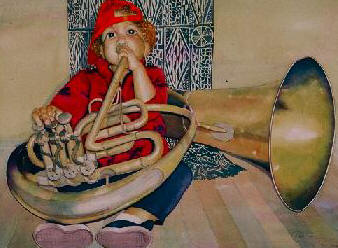
http://www.bostonclassicalorchestra.org/schedule/program4.html
share your experiences with the community and send it to Wolfgang[AT]Ellenberger.name
please with photos etc. as attachment! Or fill out
this simple hobby-form.
We give you all this for free and ask just for three little favours to make the world-wide community grow: |
||
| opt-in for FREE monthly newsletter | link to www.DoctorsHobbies.com from your site! | BECOME MEMBER! |
Check also the Site Policy including business rules |
...want to visit the DocLinks? |
|